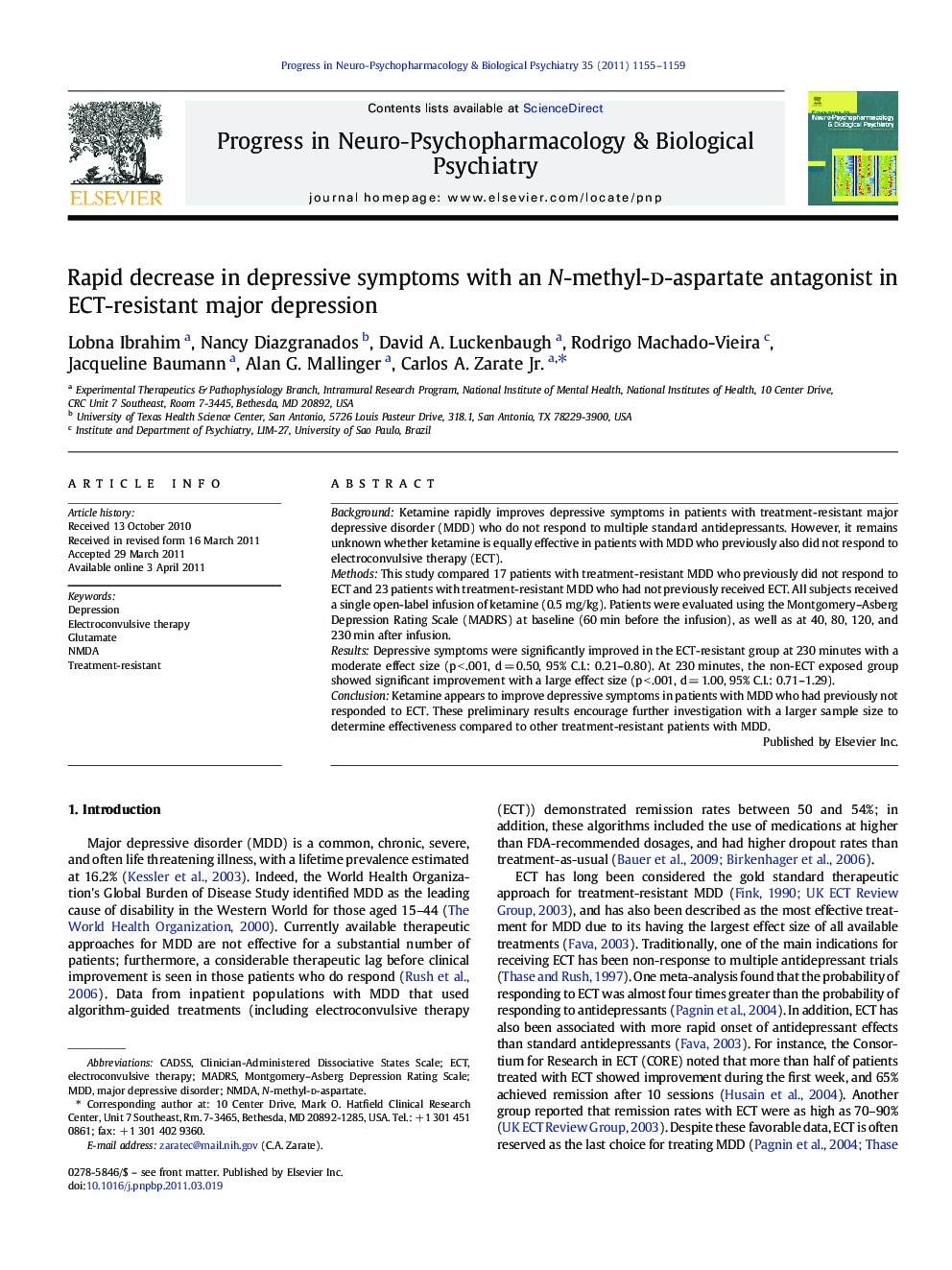| Article ID | Journal | Published Year | Pages | File Type |
|---|---|---|---|---|
| 2565263 | Progress in Neuro-Psychopharmacology and Biological Psychiatry | 2011 | 5 Pages |
BackgroundKetamine rapidly improves depressive symptoms in patients with treatment-resistant major depressive disorder (MDD) who do not respond to multiple standard antidepressants. However, it remains unknown whether ketamine is equally effective in patients with MDD who previously also did not respond to electroconvulsive therapy (ECT).MethodsThis study compared 17 patients with treatment-resistant MDD who previously did not respond to ECT and 23 patients with treatment-resistant MDD who had not previously received ECT. All subjects received a single open-label infusion of ketamine (0.5 mg/kg). Patients were evaluated using the Montgomery–Asberg Depression Rating Scale (MADRS) at baseline (60 min before the infusion), as well as at 40, 80, 120, and 230 min after infusion.ResultsDepressive symptoms were significantly improved in the ECT-resistant group at 230 minutes with a moderate effect size (p < .001, d = 0.50, 95% C.I.: 0.21–0.80). At 230 minutes, the non-ECT exposed group showed significant improvement with a large effect size (p < .001, d = 1.00, 95% C.I.: 0.71–1.29).ConclusionKetamine appears to improve depressive symptoms in patients with MDD who had previously not responded to ECT. These preliminary results encourage further investigation with a larger sample size to determine effectiveness compared to other treatment-resistant patients with MDD.
Research Highlights► Does ketamine reduce depressive symptoms in MDD patients who had previously not responded to ECT? ► These MDD patients had either previously failed to respond to ECT or not previously received ECT. ► Both groups received a single ketamine infusion and showed significant improvement 230 mins later. ► No difference was found in proportion of patients per group whose depressive symptoms improved. ► Ketamine improved depressive symptoms in MDD patients who had previously not responded to ECT.
